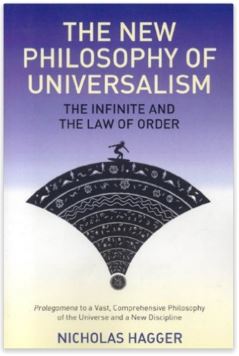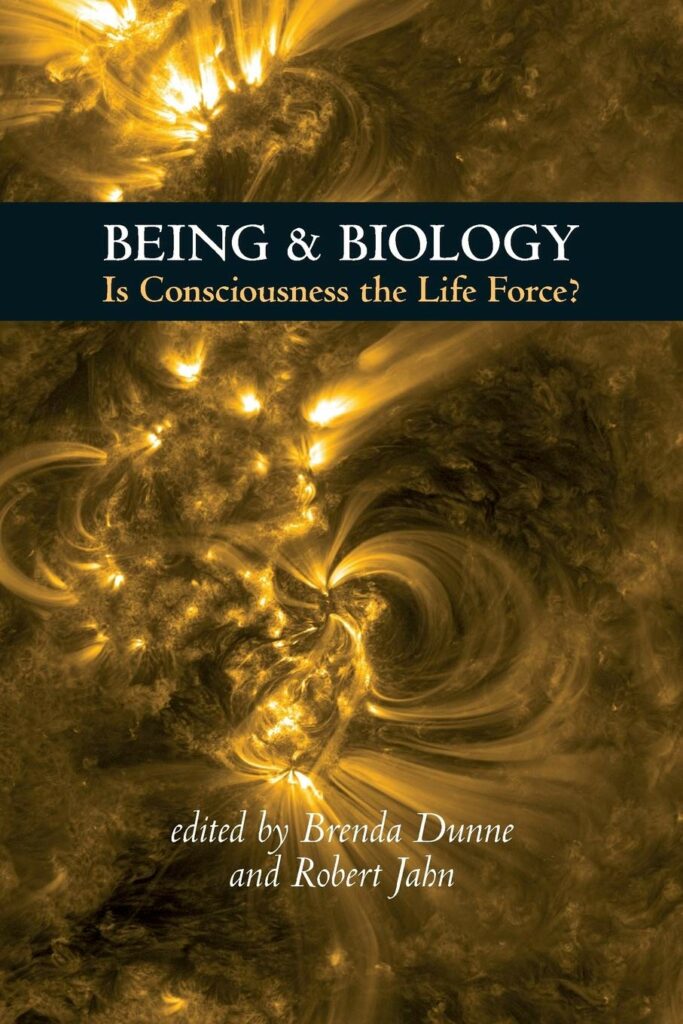
Hagger, N ‘The New Philosophy of Universalism: The infinite and the law of order’ – Metaphysics as a Possible Open System

This book offers a comprehensive philosophy of the universe. At these words one’s heart sinks. Here is yet another elaborate metaphysical cloud castle which seeks to tie together science, religion, God, and matter all in one formula. Fortunately this book is better than its pretensions. Although it does offer elaborately structured answers to metaphysical issues, to what might be considered an excessive degree, it is a programme for further inquiry, not a final answer – the difference is important.
Hagger starts with the despicable bankruptcy of Anglo-Saxon philosophy in the 20th century. What by definition is supposed to be the wisdom which unites all knowledge has been narrowed down to the linguistic analysis of word problems. Future historians may have much to say about the narrow concerns of academic philosophers and the crisis of Western civilisation in the 20th century, but that is not Hagger’s concern. He seeks a foundation for true metaphysical philosophy, and he finds it in the void of nothingness from which all things proceed.
Since everything comes from this, then this must be the beginning for philosophy. In cosmology this is the ‘big bang’ whereby the material universe emerges from a fluctuation in the quantum vacuum, but Hagger has already argued that Reductionist Materialism does not work. Therefore what emerges from the void is not only matter but consciousness as well. Thus the basis of Universalist philosophy is the unfathomable final Reality from which emanates an evolutionary wave of matter, energy, life and consciousness. This wave is constrained by two fundamental parameters, the law of order, and the law of randomness. Hagger is a polymath, and he shows at great length,and in fine detail, how cosmology, physics, and evolutionary biology can be made to fit into this scheme. Ethics and the ultimate unity of religious experience obviously follow.
The idea that the material world is an emanation of the timeless One is a common theme in philosophy East and West as Neo-Platonism and the Vedanta show, but two things make Hagger’s Universalism distinctive. The first is the special role of the quantum vacuum – something which previous thinkers would not have known about: the second is two questions that are asked, and not answered. In Universalism’s system there are 12 levels of consciousness. He is aware that the construction of his philosophical system is the work of the intellect, but he tries to rise to a higher intuitive level in order to solve two key questions, the nature of the interconnection between mind and matter, and the fate of the individual self after death.
Even given the synthesis of science and spirituality given by Universalist philosophy, Hagger’s intuition can find no way to explain how a material energy measured in mathematics transmutes into a conscious thought. The secret lies in the nature of quantum vacuum, but he has the honesty to admit that he does not know what it is. Again what happens to the atomic unit of consciousness in time which is the human self when the body dies? Is it reabsorbed into the timeless One behind all reality? Does it remain on some cosmic shelf to be reincarnated, or resurrected at the end of time? The answer is we do not know.
It is refreshing that such a vast metaphysical synthesis can reinterpret itself as an open system of inquiry which leaves major questions unanswered.
by Max Payne


